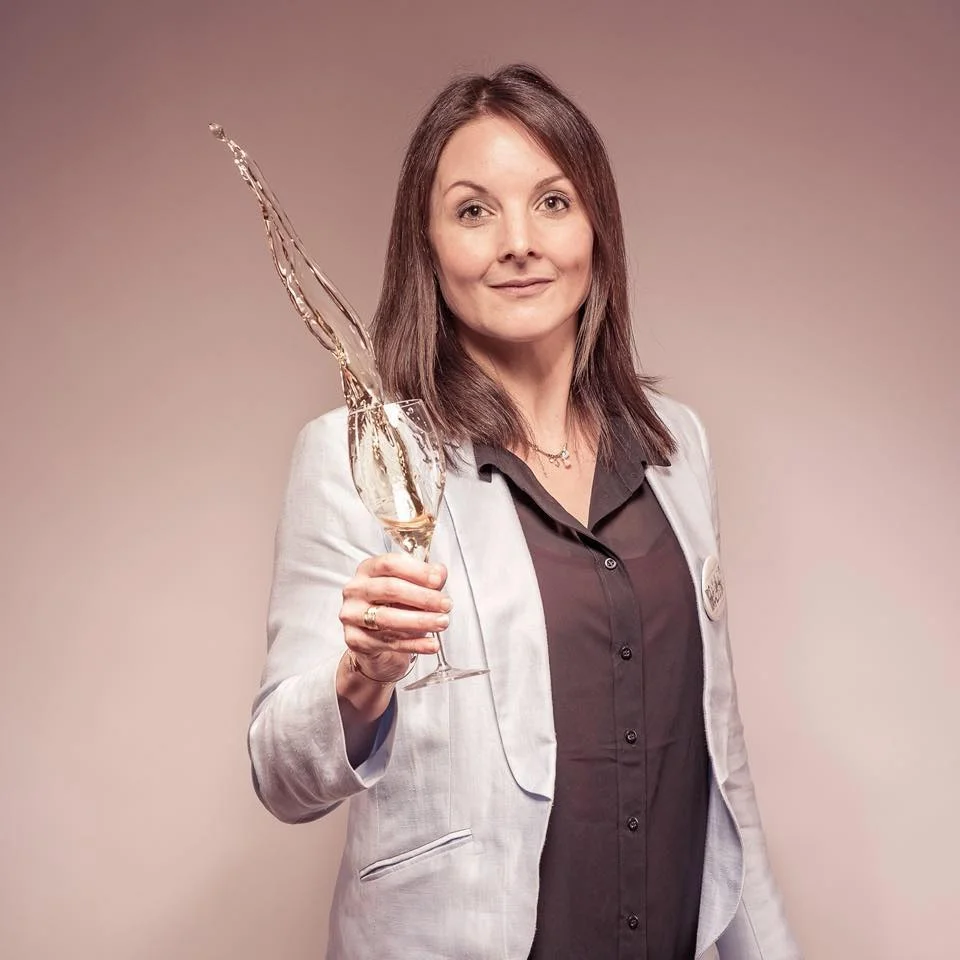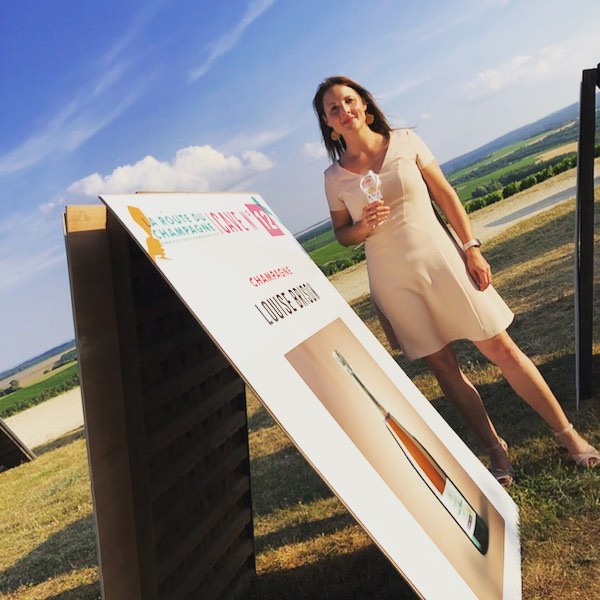The Next Generation: Delphine Brulez of Champagne Louise Brison
Delphine Brulez, winemaker at Champagne Louise Brison, hails from the Aube, a southwestern enclave in Champagne that has always had a touch of a rebellious streak. Closer in geography, soil, and spirit to Burgundy than to Reims, many winemakers here are leading the grower-producer revolution that is focusing on terroir—that is, single-vineyard, single-vintage, even single-varietal Champagne—in a region where blending has defined the style for centuries. The Aube is, at the very least, making us rethink what we know about Champagne.
It’s within this context that we find Champagne Louise Brison, a family winery in the town of Noé-les-Mallets making beautiful vintage-focused Champagnes. Delphine Brulez is the great-granddaughter of Louise Brison, who started the family vineyards with one hectare of grapes. Delphine’s father, Francis, began making wine in 1991, and his philosophy of showcasing terroir has defined the winery. Delphine says, “We have a special exposition, on a beautiful hill. We make only vintage Champagne. That’s the best way to have a real picture of terroir, and of the weather. If you want to have a real picture you have to take weather into consideration. We don’t do any year blends. We work like Burgundy. We are closer to Burgundy. We studied in Burgundy. It’s a big influence.”
The respect for the vintage has informed their decision to hold all their wines back for five years before release, plus an extra year for the Blanc de Blancs. Delphine says their wines need this time in bottle, and that the 2012 vintage is looking excellent for ageing: “The 2012 vintage was amazing, very fresh, great potential. For good aging you have to have acidity. It’s a natural preservative. You have to have complexity, structure, and flavor. You have those three parts in 2012, much like the 2002 vintage, which is still the best of the best since we began. When it reaches its full potential, you’ll get flavors like quince and honey. When it’s younger it’s a completely different flavor, more fruit forward. In a sunnier vintage like 2009 you get more apricot, and in a fresher vintage like 2012 you get more citrus flavors. The range of flavors is completely different. If you make a standard, blended Champagne you can’t see that because it’s sold at maybe two years old and the wine has no time to age, and if it’s blended they can manipulate the flavor.”
To this end, farming is crucial. If the yield is too high, the concentration won’t be right and it won’t be ageable. The average age of the vines is important, as fruit from only young vines won’t make an ageable wine, either. Plus young vines are vulnerable to storms, which have become more violent and unpredictable each year, especially in the last ten, due to climate change. This year, for instance, her vineyards were plagued by summer storms and hail, and she expects they’ll lose up to 75 percent of their crop. Luckily the third that is left will be very high quality, but it will nonetheless be a difficult year. Weather impacts a grower-producer in a very particular way. Large Champagne houses have reserves from which they can blend if one vintage is bad, or perhaps they can find other sources of fruit. But to Delphine it is so important to encapsulate what happens in each year. She says: “Each year has a right to exist, but not each is the year of the century.”
They farm organically—not manipulating their land with chemical pesticides or fertilizers. “The goal is quality. It’s all about the next generation. Each year we think about what we can improve, for the future, for the environment,” Delphine says. “My dad has been working the same soil for over 30 years. When you use a lot of chemicals and then stop, the vines need maybe 10 years to recover. Like if you stop an antibiotic, it takes along time for your body to recover. Healthy soil has a lot of microorganisms. When you go organic, you have to be prepared. You must begin somewhere.” Currently, organic growers comprise only 1.3 percent in Champagne.
Delphine has two young sons who might be the next generation, though she’s making no demands. “My dad didn’t tell me I had to be the next generation. It just happened piece by piece, working the vines, growing up with it, and I caught the virus. We don’t work for us, we work for the next generation. We hope our children will be the next generation but I won’t force them. We have a very hard job. It can be difficult. But it’s so much more. Each day when I wake up I do something different. Go to the vines, go to the cellar. The variety is so important that the job is perfect for me. I studied the production side but we are just two with my father, so we have to do everything.”
Whatever may happen with the next generation, Delphine is a strong leader in this one, bringing this generation’s ideas of sustainable farming and terroir-driven wines to the fore of the conversation. Delphine is part of a group called Les Fa’bulleuses, a winemaking collective comprising women who occupy leadership roles. She says, “The taboo of taking the family estate when you are a woman is not there anymore, but it’s still not easy. You have to have a strong temperament. We are all winemakers in different terroir in Champagne. We are in the same situation so we all work together. It’s nice to be together to share and solve problems together.” This group is part of a new generation who wants to make a real difference in Champagne, who wants to represent their terroir. “We have the quality. We know our terroir. It’s the future. We are small compared to big brands, but we sell something that is so real and important for us.”
- Kate Soto





